
Wa: The Heartbeat of Ghana's Upper West Region
Wa, the capital of Ghana's Upper West Region, is a city brimming with rich history and vibrant culture. It's a destination that offers a unique blend of traditional and modern experiences. As you wander through the bustling markets, you'll find friendly locals eager to share their stories and traditions. The city's architecture reflects its diverse heritage, with ancient mosques standing alongside contemporary buildings. Nature enthusiasts will be delighted by the surrounding landscapes. Wa is the gateway to the Wechiau Hippo Sanctuary, where you can embark on guided tours to see the majestic hippos in their natural habitat. The sanctuary's riverside scenery is perfect for birdwatching and peaceful boat rides. For a taste of history, visit the Wa Naa's Palace, a symbol of the city's royal heritage. The palace's intricate design and historical significance make it a must-see attraction. Cultural festivals are a highlight of any visit to Wa. The Dumba Festival, celebrated by the Waala people, showcases traditional dances, music, and ceremonies. It's a vibrant display of the city's rich cultural tapestry. Wa also offers a variety of local cuisines, from hearty Tuo Zaafi to delicious Waakye, providing a culinary adventure for food lovers. In Wa, every corner holds a story, every meal is a feast, and every smile is a warm welcome.
Local tips in Wa
- Visit the Wechiau Hippo Sanctuary early in the morning for the best chance to see hippos.
- Attend the Dumba Festival if your visit coincides; it's a cultural experience you won't forget.
- Try local dishes like Tuo Zaafi and Waakye at the city's traditional eateries.
- Hire a local guide for a more in-depth understanding of Wa's history and culture.
- Respect local customs and dress modestly, especially when visiting religious sites.
Wa: The Heartbeat of Ghana's Upper West Region
Wa, the capital of Ghana's Upper West Region, is a city brimming with rich history and vibrant culture. It's a destination that offers a unique blend of traditional and modern experiences. As you wander through the bustling markets, you'll find friendly locals eager to share their stories and traditions. The city's architecture reflects its diverse heritage, with ancient mosques standing alongside contemporary buildings. Nature enthusiasts will be delighted by the surrounding landscapes. Wa is the gateway to the Wechiau Hippo Sanctuary, where you can embark on guided tours to see the majestic hippos in their natural habitat. The sanctuary's riverside scenery is perfect for birdwatching and peaceful boat rides. For a taste of history, visit the Wa Naa's Palace, a symbol of the city's royal heritage. The palace's intricate design and historical significance make it a must-see attraction. Cultural festivals are a highlight of any visit to Wa. The Dumba Festival, celebrated by the Waala people, showcases traditional dances, music, and ceremonies. It's a vibrant display of the city's rich cultural tapestry. Wa also offers a variety of local cuisines, from hearty Tuo Zaafi to delicious Waakye, providing a culinary adventure for food lovers. In Wa, every corner holds a story, every meal is a feast, and every smile is a warm welcome.
When is the best time to go to Wa?
Iconic landmarks you can’t miss
Elmina Castle
Explore Elmina Castle, a UNESCO World Heritage site in Ghana, and delve into the history of the transatlantic slave trade within its ancient walls.

Kwame Nkrumah Memorial Park & Mausoleum
Discover the rich history of Ghana at the Kwame Nkrumah Memorial Park & Mausoleum, a serene tribute to the nation's founding father.

Kintampo Waterfalls & Fuller Waterfalls
Discover the breathtaking beauty of Kintampo Waterfalls & Fuller Waterfalls, a hidden gem in Ghana, perfect for nature lovers and adventure seekers.
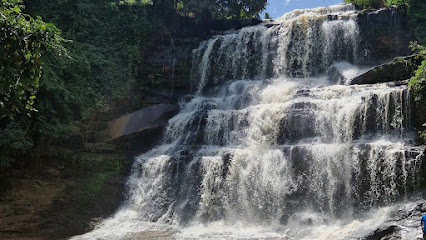
Jamestown Lighthouse
Explore the Jamestown Lighthouse in Accra, a historic beacon of maritime heritage offering stunning views and a glimpse into Ghana's vibrant culture.
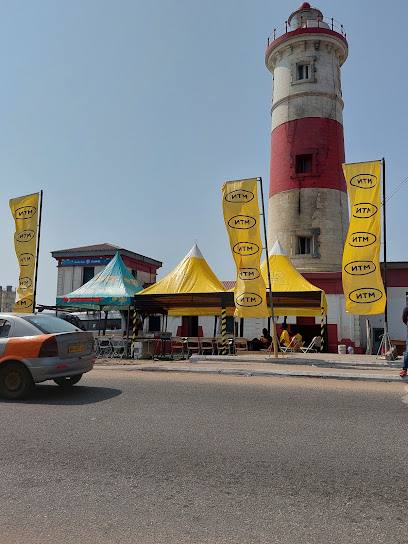
Fort James
Explore Fort James in Accra, a historic fortress offering captivating insights into Ghana's colonial history and stunning coastal views.
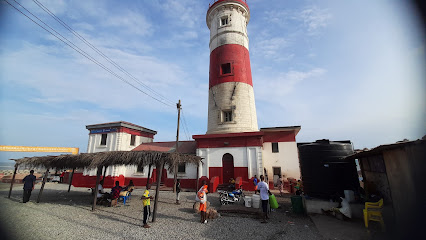
Ussher Fort
Discover Ussher Fort, Accra's historical fortress, where colonial past meets stunning coastal views in the heart of Ghana.
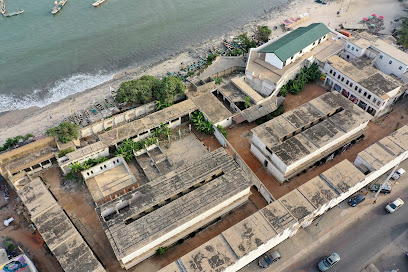
Osu Castle
Discover the historical significance of Osu Castle, a fortress that embodies Ghana's rich cultural heritage and colonial history.
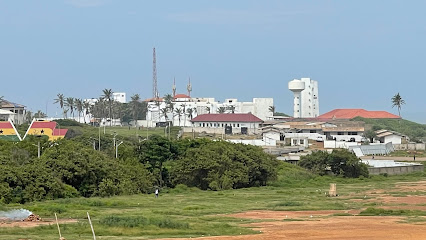
Nzulezo-Stilt Village Tour
Explore the breathtaking Nzulezo Stilt Village, a unique cultural gem on Amansuri Lake in Ghana, showcasing traditional life on stilts amidst stunning natural beauty.
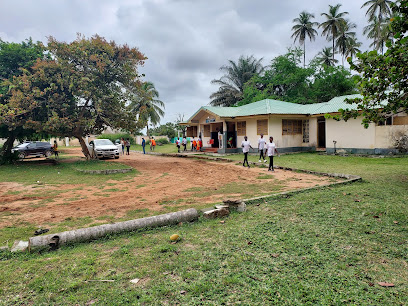
Independence Arch
Discover the inspiring Independence Arch in Accra, Ghana, a striking monument celebrating the nation's freedom and rich cultural heritage.
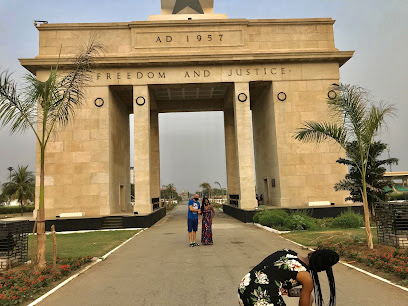
Larabanga Mosque
Explore the Larabanga Mosque, one of Ghana's oldest mosques, and immerse yourself in its rich history and stunning architecture.
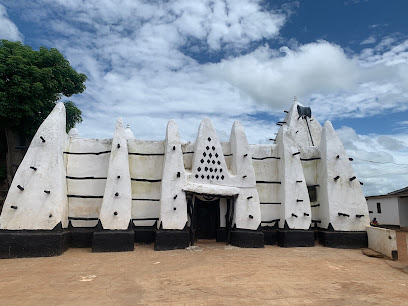
Boabeng Fiema Monkey Sanctuary
Explore the Boabeng Fiema Monkey Sanctuary, a lush paradise in Ghana where playful monkeys thrive in their natural habitat.

Wli Agumatsa Waterfalls
Experience the breathtaking beauty of Wli Agumatsa Waterfalls, Ghana's highest waterfall, surrounded by lush landscapes and vibrant wildlife.
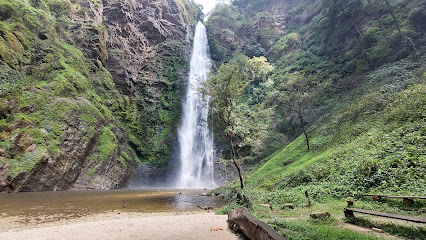
Wa Airport
Discover the charm of Wa Airport, your gateway to the Upper West Region of Ghana, filled with rich culture and stunning landscapes.
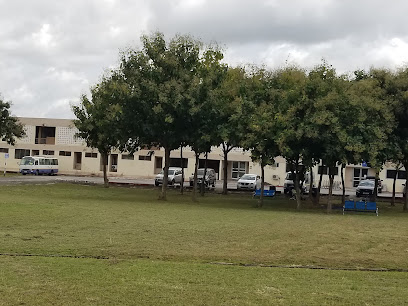
Cathedral of Saint Andrew
Discover the architectural beauty and spiritual serenity of the Cathedral of Saint Andrew in Wa, a cultural landmark fostering community and faith.
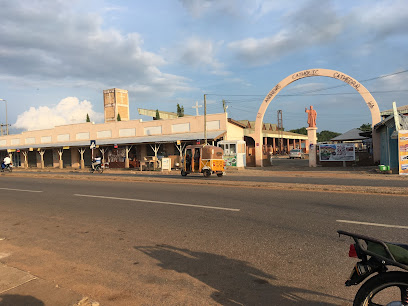
Gwollu Slave Defense Wall
Explore the Gwollu Slave Defense Wall, a historic monument in Ghana reflecting the resilience of the Sissala people against the slave trade.
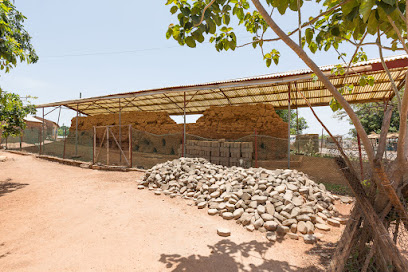
Unmissable attractions to see
Wechiau Hippo Santuary
Experience the Wechiau Hippo Sanctuary, a unique eco-tourism destination in Ghana where you can witness hippos in their natural habitat.
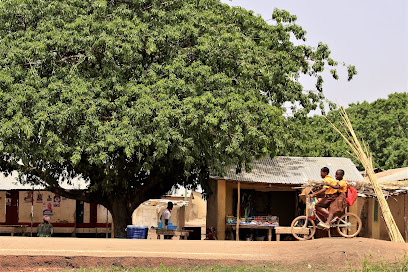
Nakore Mosque
Discover the architectural splendor and cultural significance of Nakore Mosque, a must-visit landmark in Wa, Ghana, showcasing local heritage and traditions.
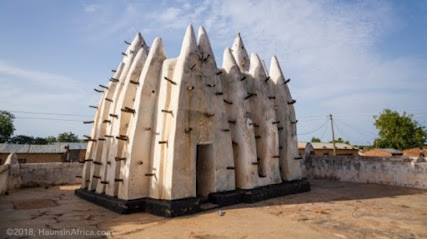
Royal Masoleum (Namara, Degunni)
Discover the Royal Masoleum in Kaleo, a captivating blend of history and culture that showcases the rich traditions of Ghana.
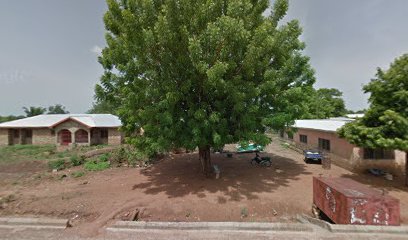
Siiru Dam/Reservoir
Explore the tranquil beauty of Siiru Dam in Vieri, a perfect escape for relaxation, adventure, and connection with nature.

Biihee park
Explore the tranquil beauty of Biihee Park in Wa, Ghana – a perfect spot for relaxation, picnics, and connecting with nature.

Sankana Chief Palace
Explore the Sankana Chief Palace, a vibrant cultural landmark showcasing Ghana's rich history, stunning architecture, and community traditions.

Nakore Dam
Experience the tranquil beauty of Nakore Dam, a hidden gem in Kapaguri, perfect for nature lovers and photography enthusiasts.

Jen-Jeng
Explore Jen-Jeng, a stunning tourist attraction in Wa, Ghana, where nature and local culture come together for an unforgettable experience.
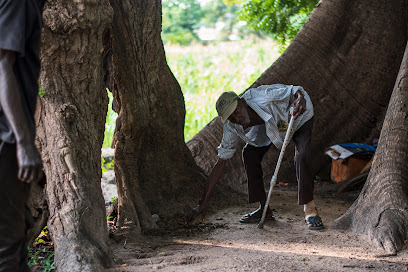
George Zangnaah - Xylophone maker
Explore George Zangnaah's workshop in Takpo to experience the enchanting art of xylophone making and the rich cultural heritage of Ghana.
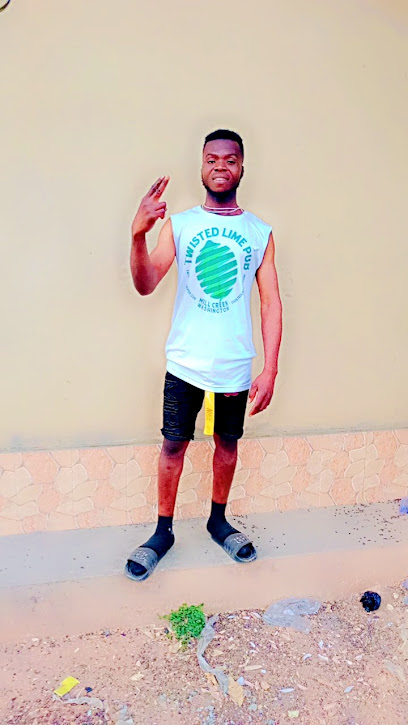
Gure Porcupine Sanctuary
Discover the Gure Porcupine Sanctuary, a unique wildlife haven in Sombo, Ghana, dedicated to the conservation of porcupines and their natural habitat.

Golo Pie
Discover the beauty of Golo Pie in Sombo, Ghana, a unique tourist attraction blending nature and culture for an unforgettable experience.

LEOMORSUNG FARMS
Experience the serene beauty and biodiversity of Leomorsung Farms, an ecological park in Wa, Ghana, perfect for nature lovers and eco-tourists.
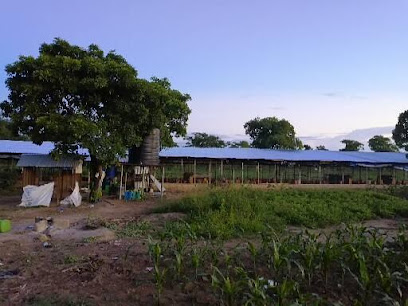
Shallot Aweh Weaving Workshop
Explore the rich textile traditions of Wa at Shallot Aweh Weaving Workshop, where artistry meets culture in every handcrafted piece.
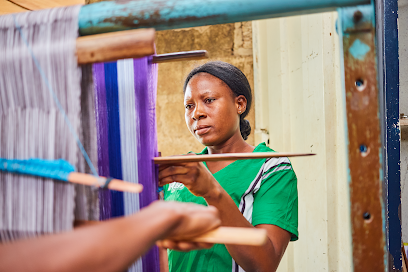
Kumbiahi Crocodile Pond
Explore Kumbiahi Crocodile Pond, a peaceful nature preserve in Wa, showcasing the beauty of Ghana's wildlife and lush landscapes.

Yeleyiri Dam/Reservoir
Explore Yeleyiri Dam in Ole, a serene reservoir offering stunning views, outdoor activities, and a peaceful escape into nature's embrace.

Essential places to dine
Mummy's Kitchen
Discover the authentic flavors of Ghana at Mummy's Kitchen in Wa – where tradition meets taste in a vibrant setting.
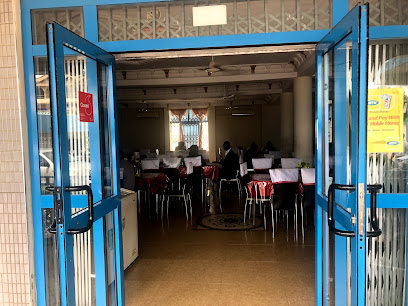
Real Spicy Foodies Restaurant
Discover authentic Ghanaian flavors at Real Spicy Foodies Restaurant in Wa - where every dish tells a story.
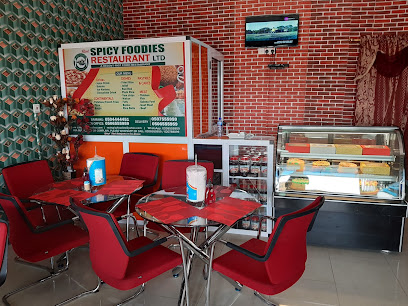
African Pot
Discover the rich flavors of Ghana at African Pot, where authentic cuisine meets warm hospitality in Wa.
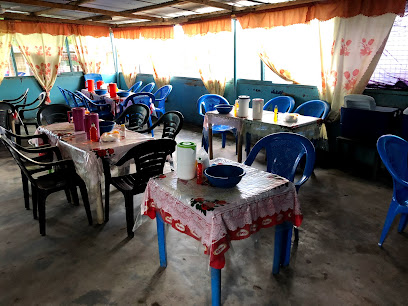
2nd Kitchen Resturant
Discover authentic Ghanaian flavors at 2nd Kitchen Restaurant in Wa - where every dish tells a story.
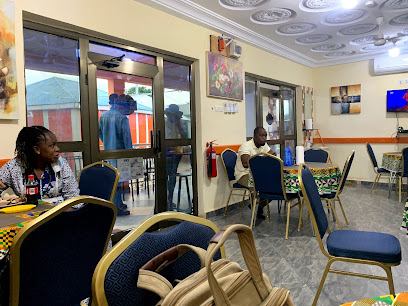
First and Last Spot
Experience the rich flavors of Ghana at First and Last Spot – where culinary delights meet warm hospitality in Wa.
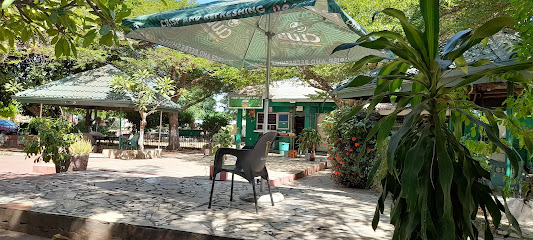
Jubilee canteen
Discover authentic Ghanaian cuisine at Jubilee Canteen in Wa, where local flavors meet welcoming hospitality amidst beautiful park surroundings.
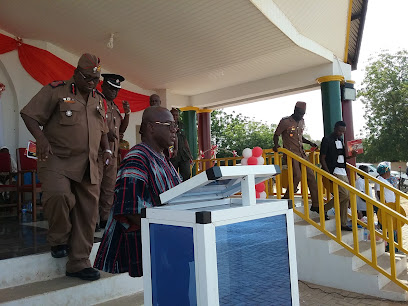
Jackibra
Experience authentic Ghanaian flavors at Jackibra in Wa—where every dish tells a story.
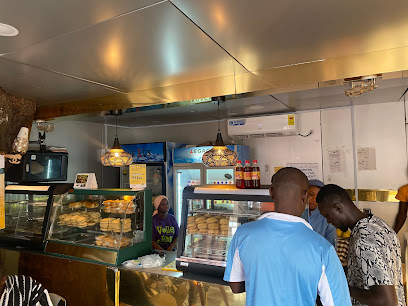
COZY RESTAURANT
Discover the vibrant flavors of Ghana at Cozy Restaurant in Wa – where fast food meets local charm.
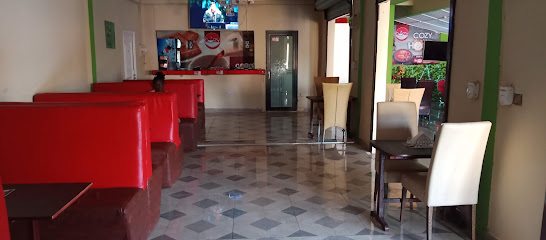
Tilapia City Fast Food
Experience authentic Ghanaian cuisine at Tilapia City Fast Food in Wa - where flavor meets affordability in a vibrant atmosphere.
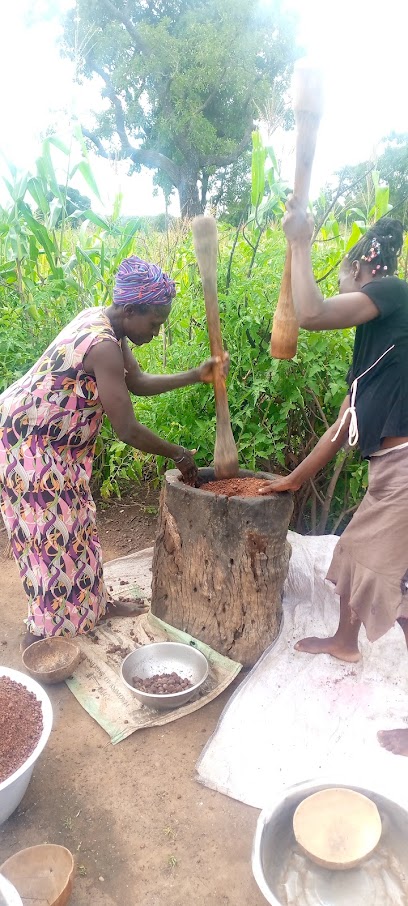
Midday Restaurant
Discover authentic Ghanaian cuisine at Midday Restaurant in Wa, where every meal tells a story of local culture and flavor.
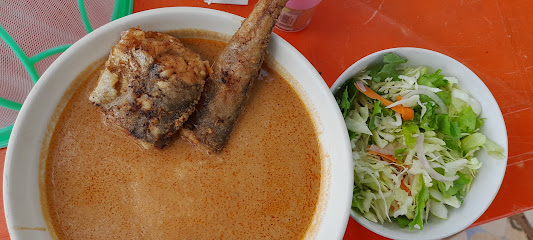
Prisoners Canteen
Experience authentic Ghanaian cuisine in a cool atmosphere at Prisoners Canteen in Wa, where tradition meets comfort.
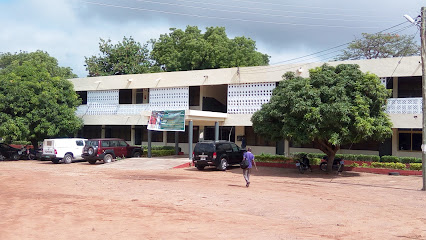
BNG Restaurants
Experience authentic Ghanaian flavors at BNG Restaurants in Wa – where every meal tells a story.
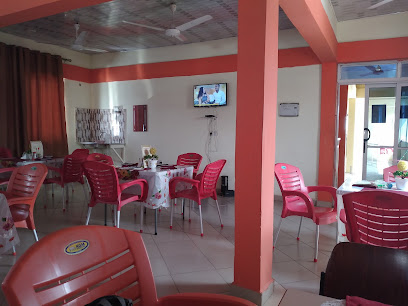
Wa, Jengbeyiri
Discover authentic Ghanaian cuisine at Jengbeyiri Restaurant in Wa - a true culinary gem offering vibrant flavors and warm hospitality.

JOY ZONE Kitchen and Events
Family-friendly dining at JOY ZONE Kitchen and Events in Wa - where delicious food meets joyful gatherings.
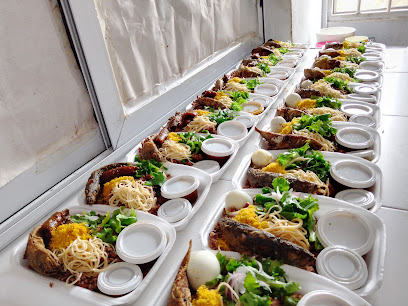
The Shield Bar & Restaurant
Savor authentic Ghanaian cuisine at The Shield Bar & Restaurant in Wa - where flavor meets culture.
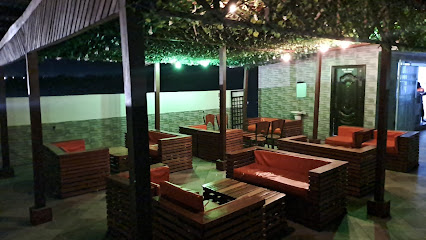
Markets, malls and hidden boutiques
Fashion House-wa
Explore Fashion House-wa in Wa, Ghana - a trendy boutique offering unique unisex clothing and accessories reflecting vibrant local culture.
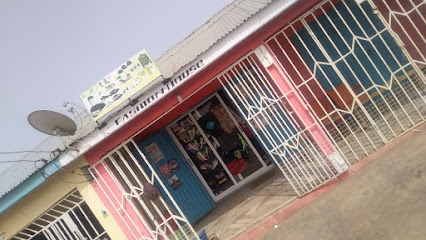
Heena’s Trends Annex
Discover unique fashion at Heena’s Trends Annex, a charming women's boutique in Wa, Ghana, featuring trendy apparel and personalized shopping experiences.
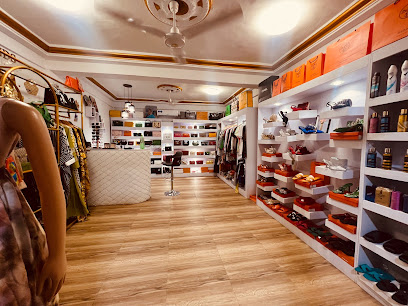
Califonia Shop & Kitchen
Explore local flavors and ingredients at Califonia Shop & Kitchen in Wa, a must-visit grocery store for culinary enthusiasts and tourists.
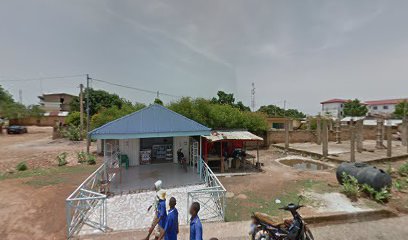
Daddy's Home collections
Explore Daddy's Home Collections in Wa for trendy apparel and stylish finds for all ages in a welcoming shopping atmosphere.
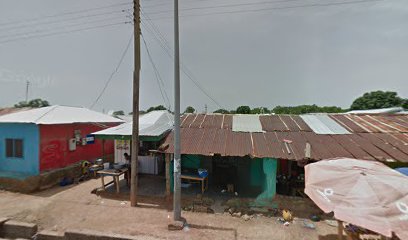
Smock City Business Centre
Discover the vibrant culture of Wa through fashion at Smock City Business Centre, where traditional smocks meet modern styles.

Savannah Staff Craft Ent.
Explore Savannah Staff Craft Ent. for unique Ghanaian gifts and handcrafted treasures that reflect the rich culture and artistry of Wa.

Purity Couture
Experience the vibrant fashion scene at Purity Couture in Wa, where local craftsmanship meets contemporary style for the perfect shopping adventure.
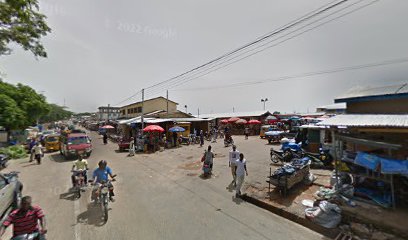
New Generation Book Shop
Explore the charm of New Generation Book Shop in Wa, a perfect stop for book lovers and an enriching experience of Ghanaian literature.
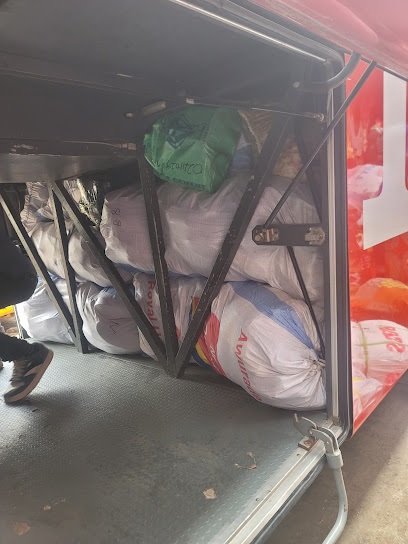
Bashit's Smock Shop
Explore the heart of Wa at Bashit's Smock Shop, where local craftsmanship meets vibrant culture in unique handcrafted treasures.
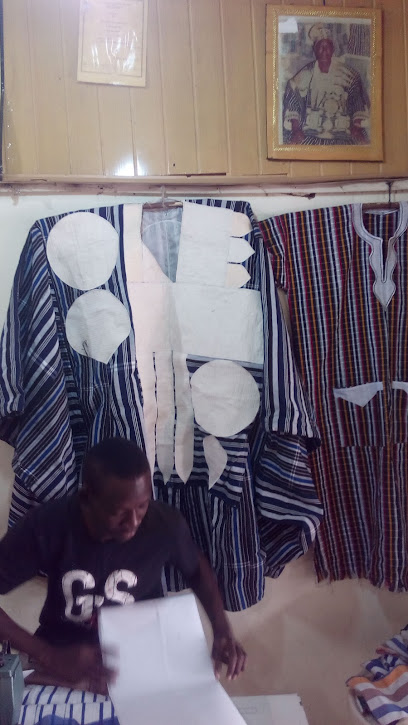
The luxury closet
Experience elegance at The Luxury Closet in Wa, Ghana, where high-end fashion meets exceptional service in a chic boutique setting.

TODAY’S GIFT AND SERVICES
Discover unique gifts and local treasures at Today’s Gift and Services in Wa, Ghana – your go-to destination for memorable souvenirs.
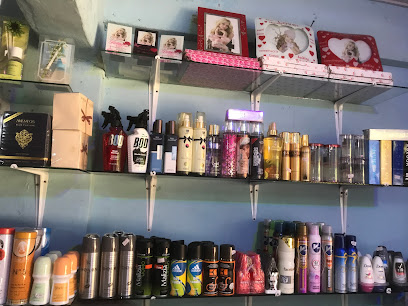
Hikis Enterprise
Explore Hikis Enterprise in Wa for unique Ghanaian fashion accessories that celebrate local craftsmanship and vibrant styles.
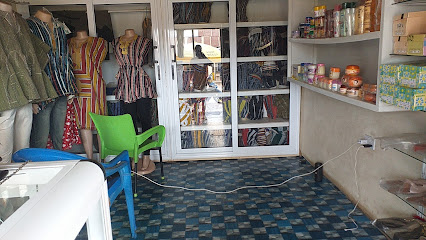
Home Boy Collection
Explore Home Boy Collection in Wa for authentic Ghanaian fashion, vibrant styles, and unique accessories that reflect local culture.

Kids Republic
Discover stylish and comfortable baby clothing at Kids Republic, the premier baby clothing store in Wa, Ghana.
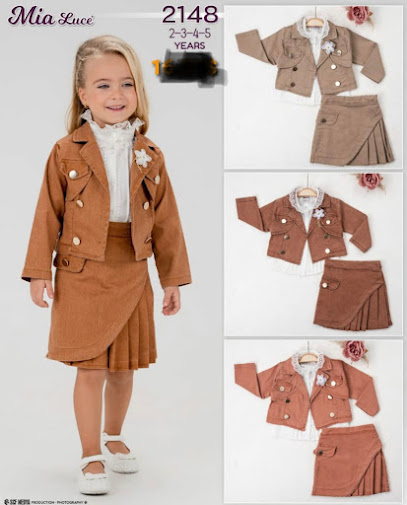
Glamour
Explore the vibrant offerings of Glamour in Wa, where local craftsmanship meets an unforgettable shopping experience.
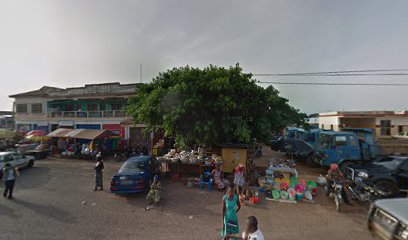
Essential bars & hidden hideouts
The Guys PUB
Discover the lively atmosphere of The Guys PUB in Wa, where local culture meets refreshing drinks and memorable live music experiences.
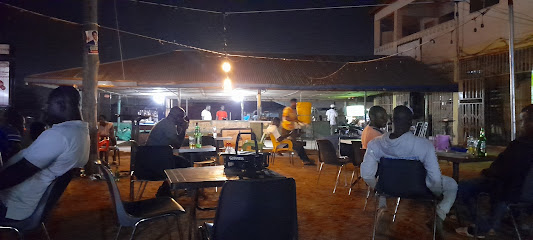
Bugatti Black Friday Pub
Experience the lively nightlife of Wa at Bugatti Black Friday Pub, offering a vibrant atmosphere and diverse drink selection.
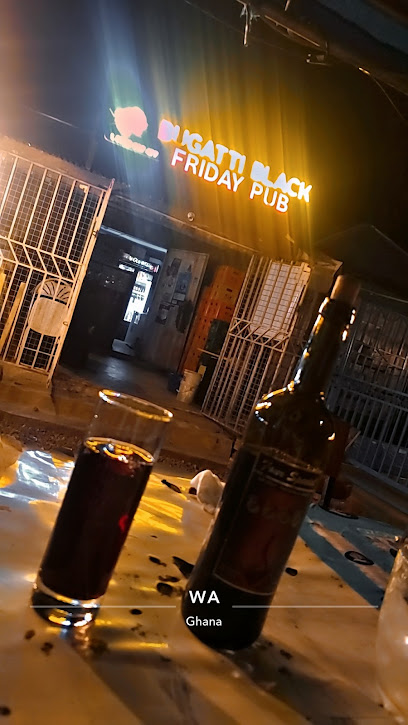
Glenn Pub & Grill
Discover the lively ambiance and delectable flavors at Glenn Pub & Grill, the perfect spot for a fun night out in Wa-Bole.
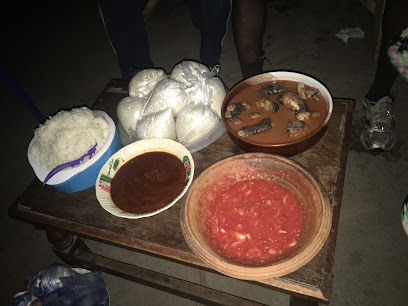
FUGITIVE PUB
Experience the local culture and flavors of Wa at Fugitive Pub, a lively spot perfect for socializing and enjoying authentic Ghanaian drinks.
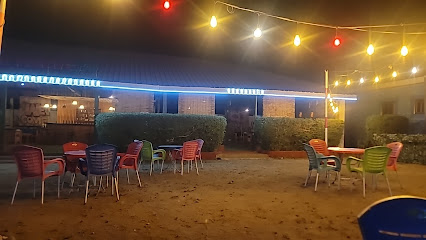
The Shield Bar & Restaurant
Discover the flavors of Wa at The Shield Bar & Restaurant, where local ingredients meet international cuisine in a welcoming atmosphere.

Garden Spot
Experience the vibrant nightlife at Garden Spot, a lively bar in Wa, offering a delightful ambiance and refreshing drinks for tourists seeking local culture.
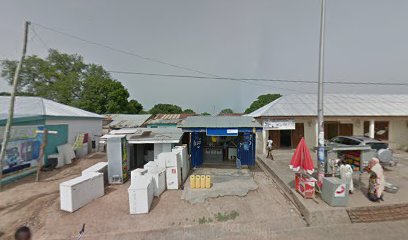
Desperados
Experience the vibrant spirit of Wa at Desperados, where local flavors meet a warm and welcoming atmosphere for tourists and locals alike.
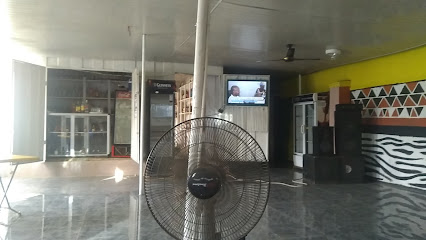
VAGONI PUB palace & Restaurant
Indulge in authentic Ghanaian flavors and international dishes at VAGONI PUB Palace & Restaurant in Wa, a must-visit culinary destination.
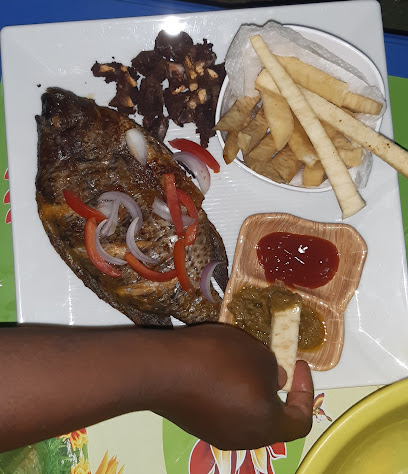
Root Sport
Experience vibrant nightlife at Root Sport, Wa's premier bar, offering a lively atmosphere, diverse drinks, and a taste of local culture.
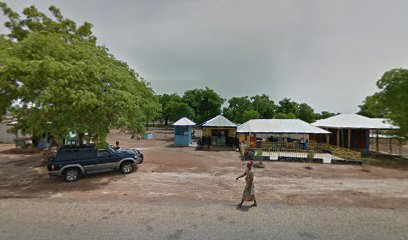
Kutum Chop Bar
Experience the vibrant taste of Wa at Kutum Chop Bar, where traditional Ghanaian cuisine meets a warm, inviting atmosphere.
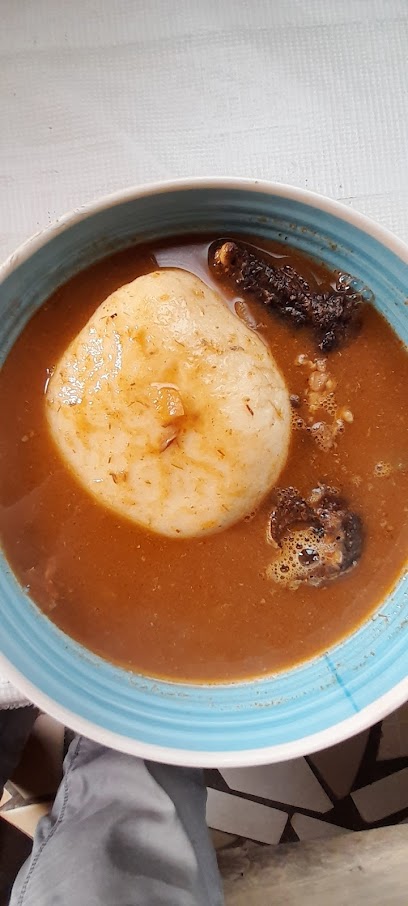
The Deansgate Avenue
Experience the vibrant nightlife of Wa at The Deansgate Avenue, where exceptional drinks and a lively atmosphere await you.
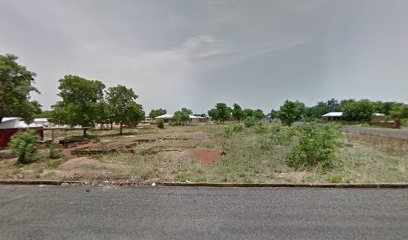
Law-Mars Drinking Spot
Discover local flavors and vibrant nightlife at Law-Mars Drinking Spot, a must-visit bar in Wa, Ghana, perfect for relaxation and socializing.
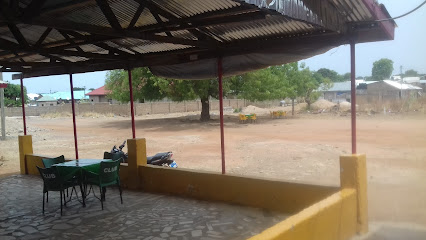
De Icy Pub
Experience the vibrant nightlife at De Icy Pub in Wa, where refreshing drinks and a lively atmosphere await you.
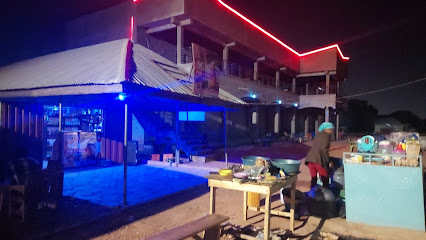
Western pub
Discover the inviting atmosphere and delicious grilled flavors at Western Pub, the perfect spot for relaxation and socializing in Wa, Ghana.
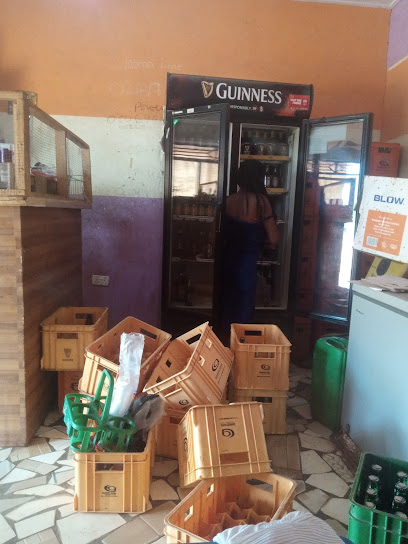
Local Phrases
-
- HelloEi
[ay] - GoodbyeAfehyia pa
[ah-fay-ya pa] - YesAane
[ah-neh] - NoDabi
[dah-bee] - Please/You're welcomeMesrɛ
[may-sray] - Thank youMedaase
[may-dah-say] - Excuse me/SorryƐte sɛn
[eh-tay sen] - How are you?Ete sɛn?
[eh-tay sen] - Fine. And you?Ewom. Na wo ho?
[ay-wom. nah woh hoh] - Do you speak English?Wo nkasa foforo bɛn saa?
[woh in-kah-sah foh-foh-roh bane saa] - I don't understandMenntumi nnidi
[men-too-me nee-dee]
- HelloEi
-
- I'd like to see the menu, pleaseMete menu no a, mesrɛ
[may-tay may-no no ah, may-sray] - I don't eat meatMenntumi nnidi ntoro
[men-too-me nee-dee in-taw-roh] - Cheers!Afe nko
[ah-fay in-koh] - I would like to pay, pleaseMete sika no a, mesrɛ
[may-tay see-kah no ah, may-sray]
- I'd like to see the menu, pleaseMete menu no a, mesrɛ
-
- Help!Boa me!
[boh-ah meh] - Go away!Kasa!
[kah-sah] - Call the Police!San atamfo!
[sahn ah-tahm-foh] - Call a doctor!San dɔkita!
[sahn doh-kee-tah] - I'm lostMenntumi nni me nsa
[men-too-me nee-meh en-sah] - I'm illMe nsu
[meh in-soo]
- Help!Boa me!
-
- I'd like to buy...Mete... a, mesrɛ
[may-tay... ah, may-sray] - I'm just lookingMete asɛm
[may-tay ah-sem] - How much is it?Agya no bɛyɛ sɛn?
[ah-jah noh bay-yay sen] - That's too expensiveNso yɛ sɛn
[in-so yay sen] - Can you lower the price?Wopɛ nso yɛbɛ sɛn?
[woh-pay in-so yay-beh sen]
- I'd like to buy...Mete... a, mesrɛ
-
- What time is it?Ɛnnora bɛyɛ sɛn?
[eh-no-rah bay-yay sen] - It's one o'clockBɔɔ nora
[boh-oh no-rah] - Half past (10)Nora mu
[no-rah moo] - MorningAnɔpa
[ah-no-pah] - AfternoonAwia
[ah-wee-ah] - EveningAnwummere
[ah-woom-meh-reh] - YesterdayNnɛ
[neh] - TodayƐda
[eh-dah] - TomorrowƐbɔ
[eh-boh] - 1Kɔtɔ
[ko-toh] - 2Afɔ
[ah-foh] - 3Anan
[ah-nahn] - 4Ananfɔ
[ah-nahn-foh] - 5Anantɔ
[ah-nahn-toh] - 6Anansia
[ah-nahn-see-ah] - 7Ananwɔtwe
[ah-nahn-woh-tweh] - 8Ananfɔfɔ
[ah-nahn-foh-foh] - 9Anantɔtɔ
[ah-nahn-toh-toh] - 10Tɛkɛtɛ
[tay-ka-tay]
- What time is it?Ɛnnora bɛyɛ sɛn?
-
- Where's a/the...?Ɛhe na...?
[eh-hay nah] - What's the address?Wɔteasi bɛyɛ sɛn?
[wo-tay-ah-see bay-yay sen] - Can you show me (on the map)?Wopɛ mma nhwehwɛ mu?
[woh-pay mmah n-way-way moo] - When's the next (bus)?Ɛyɛ meka da mu?
[eh-yay meh-kah dah moo] - A ticket (to ....)Tikiti (si ....)
[tee-kee-tee (see)]
- Where's a/the...?Ɛhe na...?
History of Wa
-
Wa, the capital of the Upper West Region of Ghana, has a rich history that dates back to the early settlements of the indigenous Wala people. The Wala, known for their distinct culture and traditions, were among the first inhabitants of the area. They established organized communities and engaged in farming, hunting, and trading with neighboring groups.
-
Islam played a significant role in shaping the culture and society of Wa. The city became a center of Islamic learning and scholarship in the 17th century when Muslim traders and clerics from North Africa and the Sahel region settled in the area. The construction of mosques and the establishment of Quranic schools helped spread Islamic teachings and practices among the local population.
-
The traditional leadership structure of Wa is centered around the Wa Naa, the paramount chief of the Wala people. The Wa Naa holds significant cultural and political authority and is revered as a custodian of the land and its customs. The Wa Naa's palace, a symbol of the traditional governance system, is a notable landmark in the city.
-
During the late 19th and early 20th centuries, Wa came under British colonial rule. The British established administrative structures and introduced Western education and Christianity to the region. Despite these changes, the people of Wa maintained their cultural heritage and continued to practice their traditional customs and Islamic faith.
-
Following Ghana's independence in 1957, Wa experienced significant socio-economic developments. The city became a hub for education and healthcare services in the Upper West Region. Institutions such as the University for Development Studies and the Wa Regional Hospital were established, contributing to the growth and modernization of Wa.
-
Wa is known for its vibrant cultural festivals, which showcase the rich heritage of the Wala people. The Dumba Festival, one of the most prominent celebrations, is held annually to mark the end of the Islamic year and to honor the Wa Naa. The festival features traditional music, dance, and rituals, attracting visitors from across the region.
Wa Essentials
-
Wa is located in the Upper West Region of Ghana. The nearest major airport is Wa Airport, which has limited flights primarily connecting from Accra, the capital city of Ghana. Alternatively, travelers can fly into Tamale Airport and then take a bus or taxi to Wa, a journey that typically takes around 6 to 8 hours by road. Long-distance buses and mini-buses (trotros) are also available from Accra and other major cities, though the journey can be quite long and bumpy.
-
Within Wa, transportation options include taxis, motorbikes (okadas), and shared mini-buses (trotros). Taxis can be hired for short trips around town or for longer excursions to nearby attractions. Okadas are a popular and inexpensive way to get around, but they may not be the safest option. Trotros are a cost-effective way to travel but can be crowded and less comfortable. Walking is also a viable option for exploring the town center and nearby attractions.
-
The official currency in Ghana is the Ghanaian Cedi (GHS). Credit cards are accepted in some hotels, restaurants, and larger shops, but it is advisable to carry cash, especially in local markets and smaller establishments. ATMs are available in Wa, but it is wise to notify your bank of your travel plans to avoid any issues with withdrawing money.
-
Wa is generally a safe destination for tourists, but it is important to take standard precautions. Avoid walking alone at night, especially in unfamiliar areas. Keep an eye on your belongings in crowded places such as markets. While there are no specific high-crime areas targeting tourists, it is always best to stay vigilant and aware of your surroundings.
-
In case of emergency, dial 191 for police assistance or 193 for medical emergencies. The Wa Regional Hospital is the main medical facility in the area. It is recommended to have travel insurance that covers medical emergencies. For minor health issues, there are several pharmacies in Wa where you can purchase over-the-counter medications.
-
Fashion: Do dress modestly, especially when visiting religious sites and rural areas. Avoid wearing overly revealing clothing. Religion: Do respect local customs and traditions. Remove your shoes and cover your head when entering mosques. Public Transport: Do be patient and polite when using public transport. Don't be surprised if schedules are not strictly followed. Greetings: Do greet people with a handshake. It is customary to ask about someone's well-being before getting down to business. Eating & Drinking: Do try local dishes such as 'Tuo Zaafi' and 'Waakye'. Don't use your left hand to eat or hand over items, as it is considered impolite.
-
To experience Wa like a local, visit the Wa Market where you can buy fresh produce and local crafts. Engage with locals, as they are often friendly and willing to share stories about the town's history and culture. Don't miss visiting the Wa Naa's Palace, which is a significant cultural and historical site. For a unique experience, attend a local festival such as the Dumba Festival, celebrated by the Wala people, which offers a glimpse into traditional music, dance, and customs.
Trending Landmark in Wa
-
Elmina Castle
-
Kwame Nkrumah Memorial Park & Mausoleum
-
Kintampo Waterfalls & Fuller Waterfalls
-
Jamestown Lighthouse
-
Fort James
-
Ussher Fort
-
Osu Castle
-
Nzulezo-Stilt Village Tour
-
Independence Arch
-
Larabanga Mosque
-
Boabeng Fiema Monkey Sanctuary
-
Wli Agumatsa Waterfalls
-
Wa Airport
-
Cathedral of Saint Andrew
-
Gwollu Slave Defense Wall
Nearby Cities to Wa
-
Things To Do in Tamale
-
Things To Do in Bobo-Dioulasso
-
Things To Do in Koudougou
-
Things To Do in Ouagadougou
-
Things To Do in Dédougou
-
Things To Do in Sunyani
-
Things To Do in Ziniaré
-
Things To Do in Kumasi
-
Things To Do in Ouahigouya
-
Things To Do in Yamoussoukro
-
Things To Do in Atakpamé
-
Things To Do in Kpalimé
-
Things To Do in Ho
-
Things To Do in Koforidua
-
Things To Do in Notse







